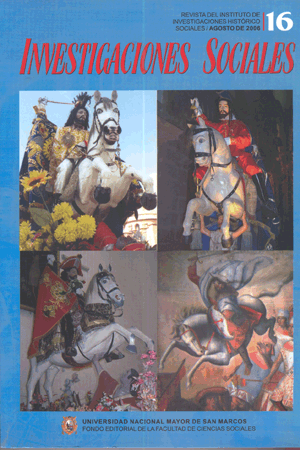El Partido Unión Revolucionaria y su proyecto totalitario-fascista. Perú 1933-1936
DOI:
https://doi.org/10.15381/is.v10i16.7029Keywords:
Party, Fascism, Populism, Sanchez Cerro, Totalitarian, Ideology.Abstract
This study presents the central characteristics of a Fascist Party in Peru, its organization, ideology and political meaning for Latin America in the decade of the 1930s. The author examines it and analyzes the Revolutionary Union Party and the process of the formation of the conservative and charismatic populism of a political movement led by Luis M. Sanchez Cerro: a military man whose dictatorial government evolved into what one could identify as «bonapartism», because of its special authoritarian-populist character. Under this panorama we will present the essential historical evidence of the Fascist presence of that party, its complex relationship with political power, its ideological and corporative axes, its xenophobia with regard to Asian immigration, its organization, especially their black shirts, and the totalitarian character of their political project between 1933 and 1936Downloads
Published
Issue
Section
License
Copyright (c) 2006 Tirso Molinari Morales

This work is licensed under a Creative Commons Attribution-NonCommercial-ShareAlike 4.0 International License.
AUTHORS RETAIN THEIR RIGHTS:
a. Authors retain their trade mark rights and patent, and also on any process or procedure described in the article.
b. Authors retain their right to share, copy, distribute, perform and publicly communicate their article (eg, to place their article in an institutional repository or publish it in a book), with an acknowledgment of its initial publication in Investigaciones Sociales.
c. Authors retain theirs right to make a subsequent publication of their work, to use the article or any part thereof (eg a compilation of his papers, lecture notes, thesis, or a book), always indicating the source of publication (the originator of the work, journal, volume, number and date).













